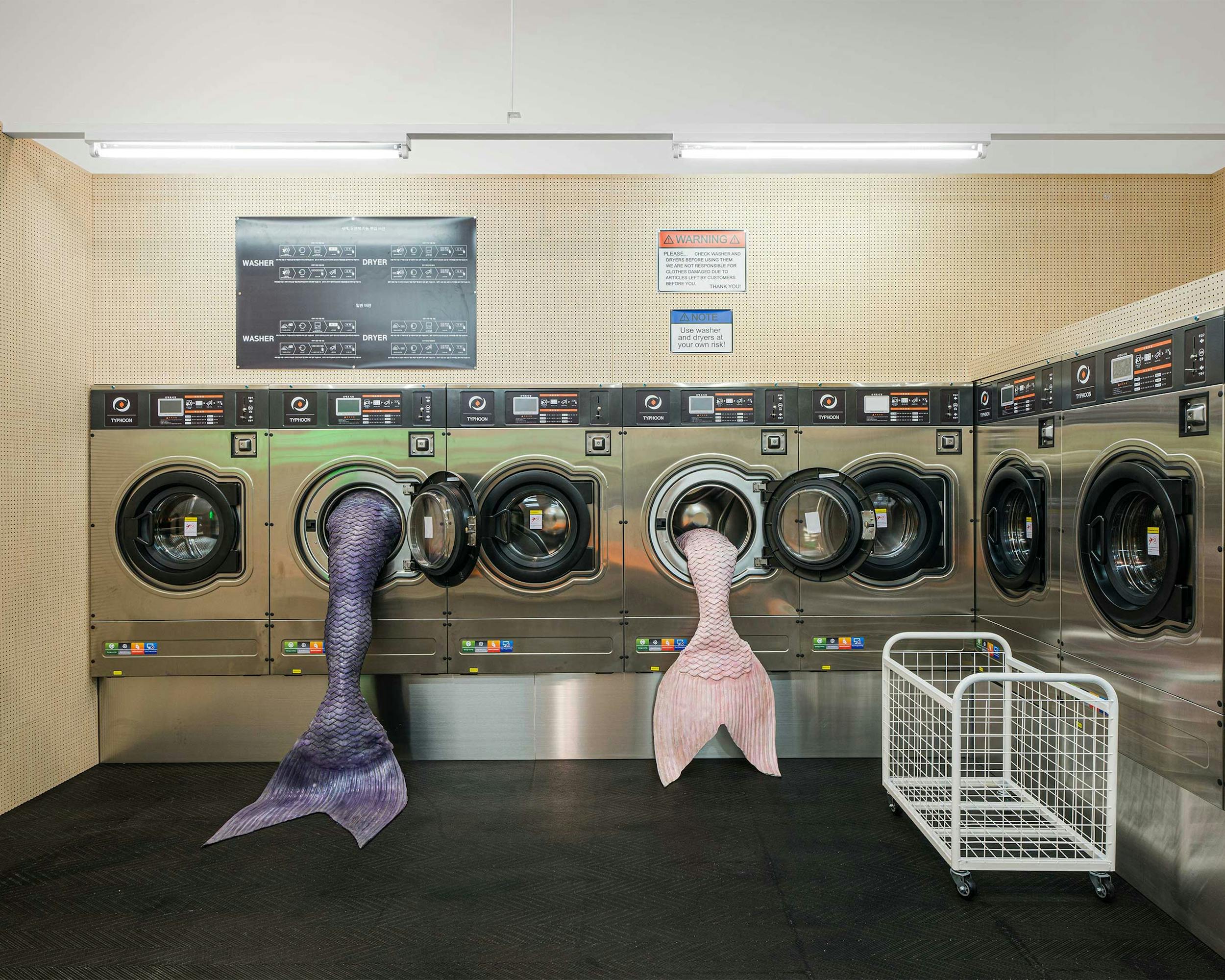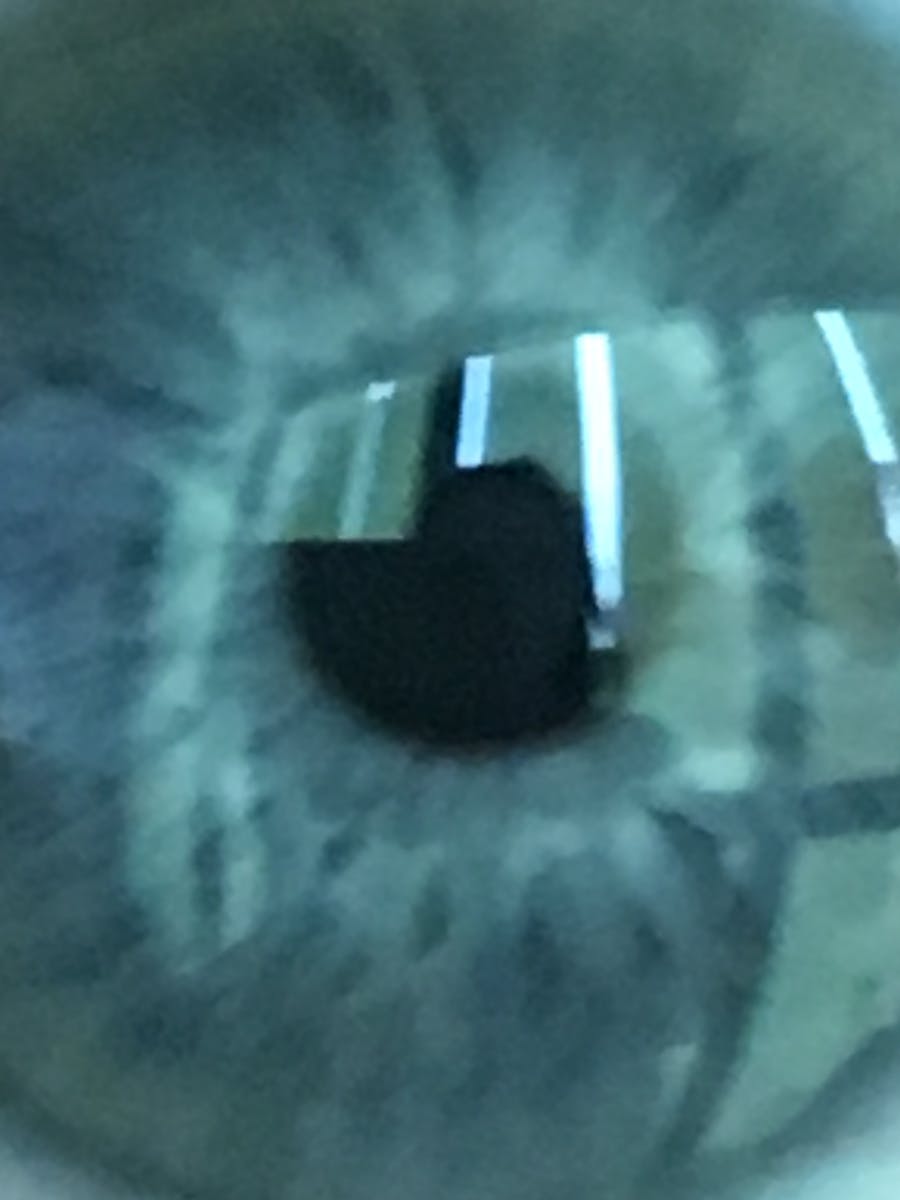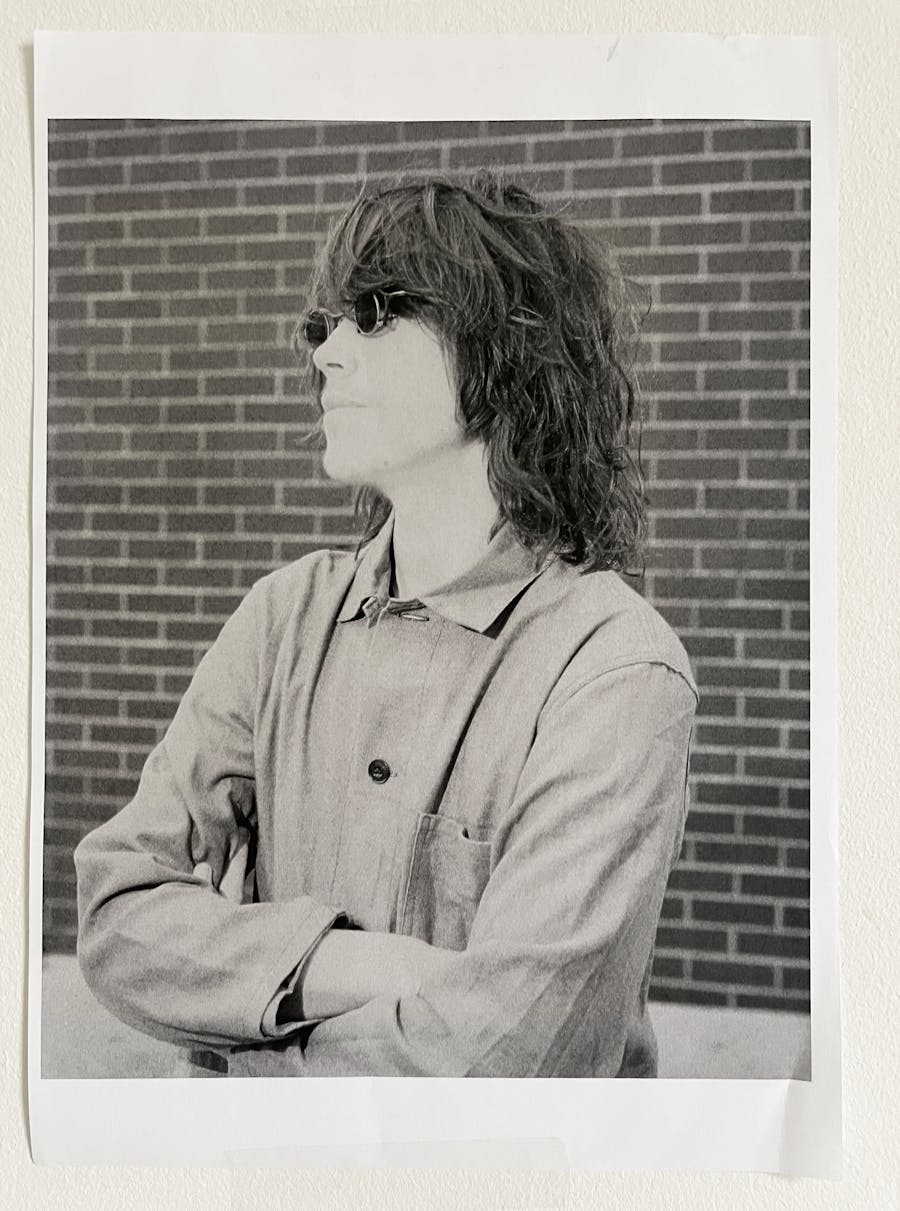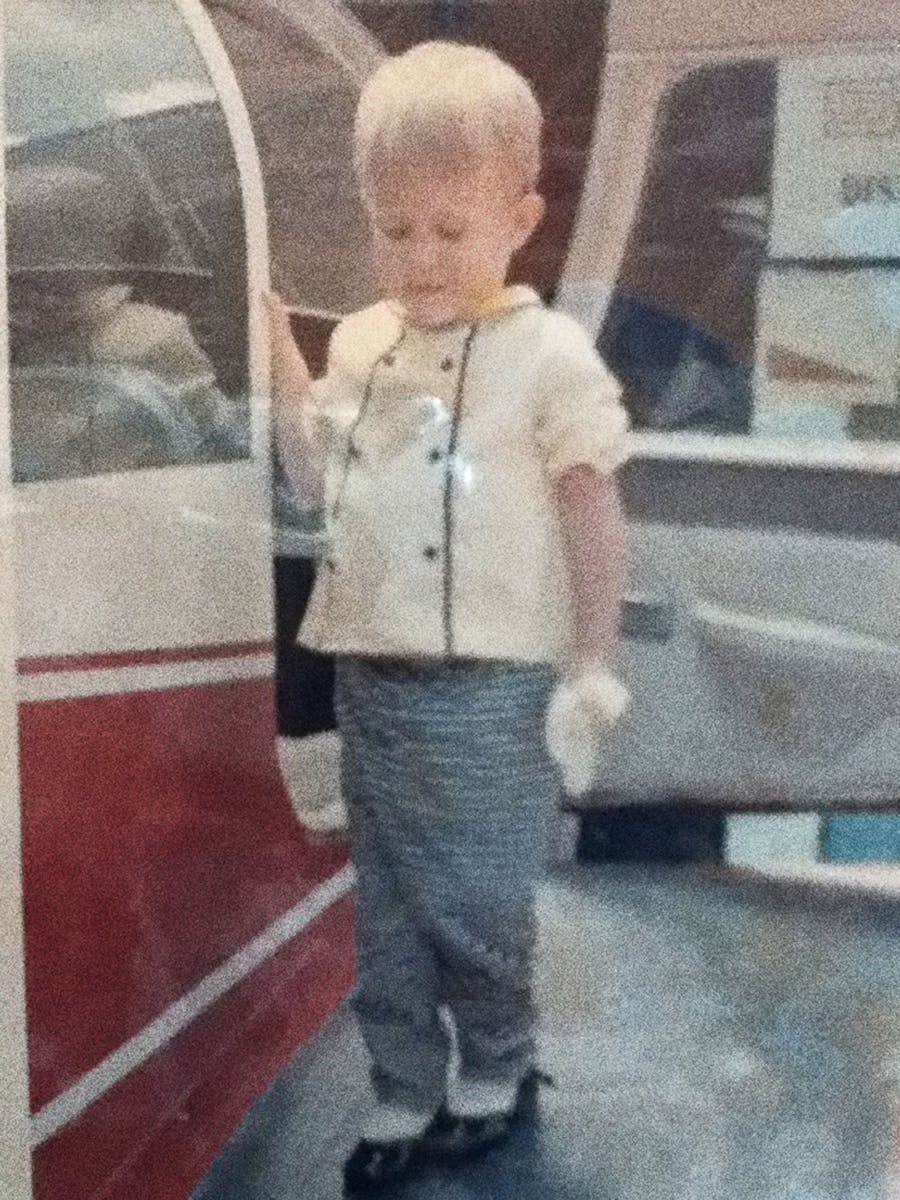In 2020, we have all been looking for a way out. An island, a garden, an imaginary window... in the hope of escaping from the real. For many people the lockdown was chiefly about the quest, doomed from the start, to accede, from the confined space of our apartments, to an elsewhere, a horizon on to which to project other possibilities. As a last resort, for the less lucky among us (of course not the unluckiest...), a simple virtual simulacrum will have sufficed to soothe this shared distress and give us the illusion of dipping our toes in warm pink sand. A trick – wonderful, benign, but a trick nonetheless. A mirage called Animal Crossing.
The possibility of an island
The principle is simple and the morality rudimentary. In a kawaii world peopled with adorable little anthropomorphic animals, the player is invited to assume the role of village mayor. The living is easy there, and the citizens’ activities consist of fishing, collecting insects, objects, and shells, selling them, making things, partici- pating in tournaments and saying hi to their neighbours. In this game of social simulation, whose temporality is that of reality, the economy is local and the systems of exchange almost entirely direct. The citizens only wish each other well and the ambitions of each do not encroach on those of others. And, with the exception of the antagonistic presence of Tom Nook, the racoon who owns the local shop and who holds the mortgage on the house you buy when you enter the game, class domination does not exist, since, (almost) as in real life, unless you cheat, you cannot get more than reasonably rich and exploit other people.
The success of Animal Crossing amongst the generation raised on the ruins of 9/11 and haunted by the word ‘crisis’, a youth whose horizons were first obscured behind the threat of ecological collapse, before disappearing with Covid-19, is not surprising to anyone. In all this chaos, Animal Crossing offers this generation a space they can control and a kind of ‘panic room’, sheltered from the hysterical echoes of the real. In penetrating into this pastoral virtual world, we have become the architects of our own ‘techno-cocoons’, as Alain Damasio, science-fiction writer and political futurologist, calls these womb-like virtual islands, secure and familiar, to which our screens are the threshold, and into which we enter to find comfort and consolation. Far from the world.
Beyond the fact of Animal Crossing’s distance from the real, the game also permits a pause from, even a break with, dogma. In this imaginary space, the player is liberated from the speed, the injunctions to perform and the productivity demands which habitually weigh on his or her mind... Animal Crossing functions like a cradle, keeping its players in the inbetween. On this subject, the description sketched above would not be complete if we failed to mention the cute incidental music (composed by Kazumi Tokada), which ripples across the background, stifling the uproar of this world and breaking the vicious cycle of the news.
‘Other Spaces’
A summons to follow the principles of a prosaic, pastoral life, a mirror held up to our busy freneticism, Animal Crossing is a gently cynical critique of our daily lives, according to philosophy professor Mathieu Triclot, author of the work Philosophie des jeux vidéo (published by Zones): ‘Animal Crossing is halfway between the garden and the doll’s house.’ He sees in it a ‘separated’ place which takes shape within our world, whilst keeping us all the while outside it, close to the imaginary and far away from context. ‘This sweet, pretty, controllable world,’ Triclot explains, ‘where everyone takes care of each other, and where even the capitalist baddies, like that terrible Nook, are not so bad after all, necessarily creates a sense of peace. Especially during lockdown, which seemed like the end of the world.’
Here, as a pastoral escape from reality, but also as a parallel place and space for imaginative realization, the game recalls a concept introduced by Foucault in a 1967 lecture entitled ‘Other Spaces.’ The philosopher described therein kinds of places ‘which are outside all places, even though they are actually localizable.’ Places we call heterotopias. The bottom of the garden, the attic, the tepee tent... To sum up, the heterotopia emerges as a situated ‘counter-space’, thus resolving the intractable objection to the concept of the utopia, too often relegated to the ranks of illusion, or fantasy. For Foucault, in a very tangible manner, one of the characteristics of the heterotopia is that it overthrows the rules of the real and erects other laws. It is anchored in the real precisely to the extent that it resists it. And that’s what we all need at the moment... a way of resisting the real.
‘The analogy between Foucault’s heterotopia and video games works very well,’ asserts Triclot. ‘His concept rests on one essential thing: a rupture with the worlds of everyday life. The standard definition of a game, which comes from Huizinga, an early theorist, refers to the sacred, to theatre... it’s the famous ‘magic circle.’ The game marks a break with the world, and our ordinary commitments.’ In Animal Crossing, this break is effected not only physically but also thanks to the ‘system’ it proposes. The principle of autonomy is the basic law there: the economy rests on gift/counter-gift exchanges, work is done by oneself for oneself, assuming a degree of technological autonomy. If goods are still treated as merchandise, they are not for all that capitalistic; the majority are self-produced through gardening, crafting, sewing or gathering. The space through our screens becomes the setting for an experiment, a laboratory where we can try out other possible ways of living. An alternative life. Another system.
It remains to be seen how we can translate these transformations into the real. Is it possible to transfer these beliefs from these pseudo-imaginary (if situated) islands to our reality? Might we one day see our current system overturned in favour of a life spent chasing butterflies? If the intrusions of the real into the game are to be believed, bridges are certainly possible.
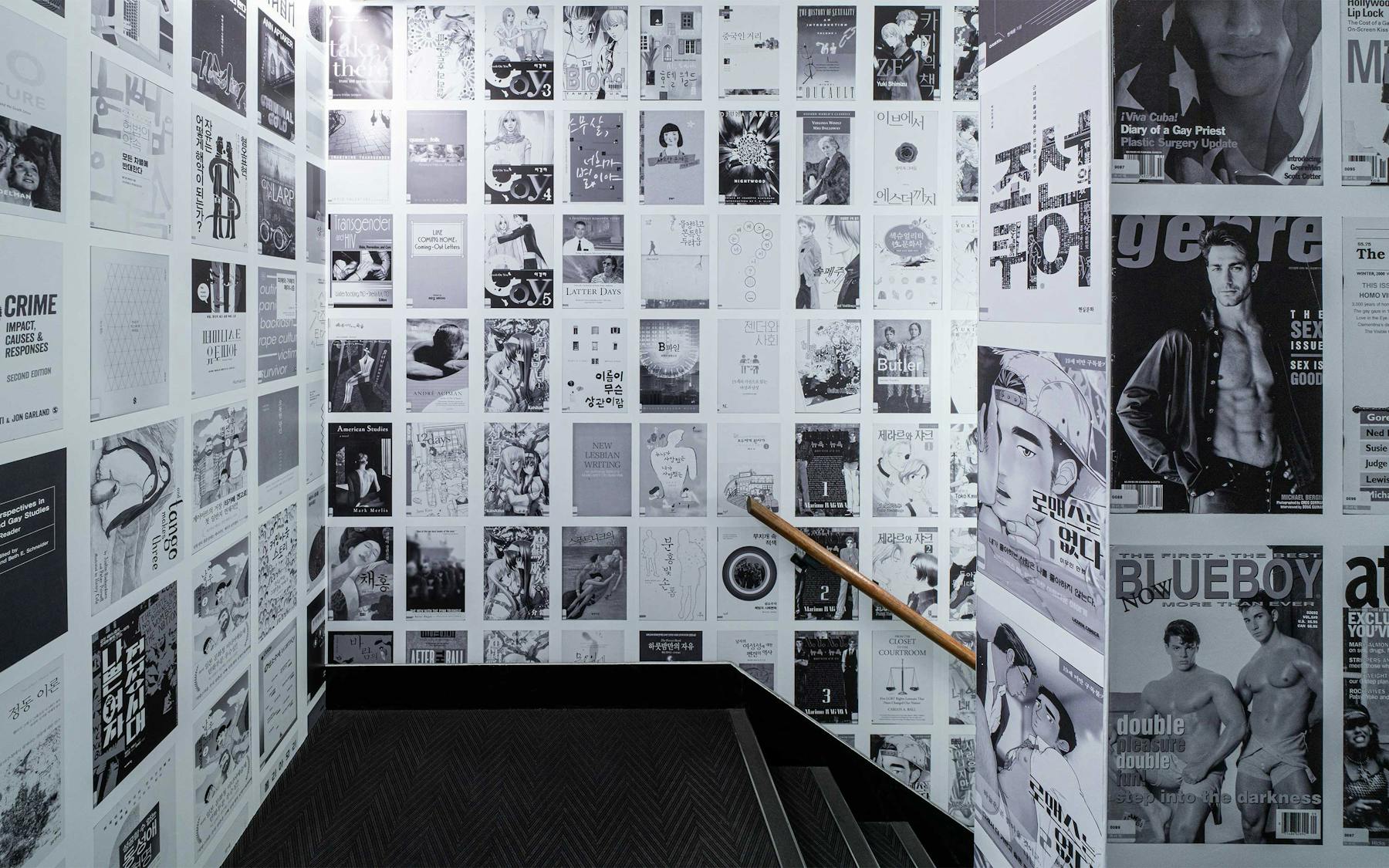
LEE KANG SEUNG, Covers (QueerArch), 2019/2020
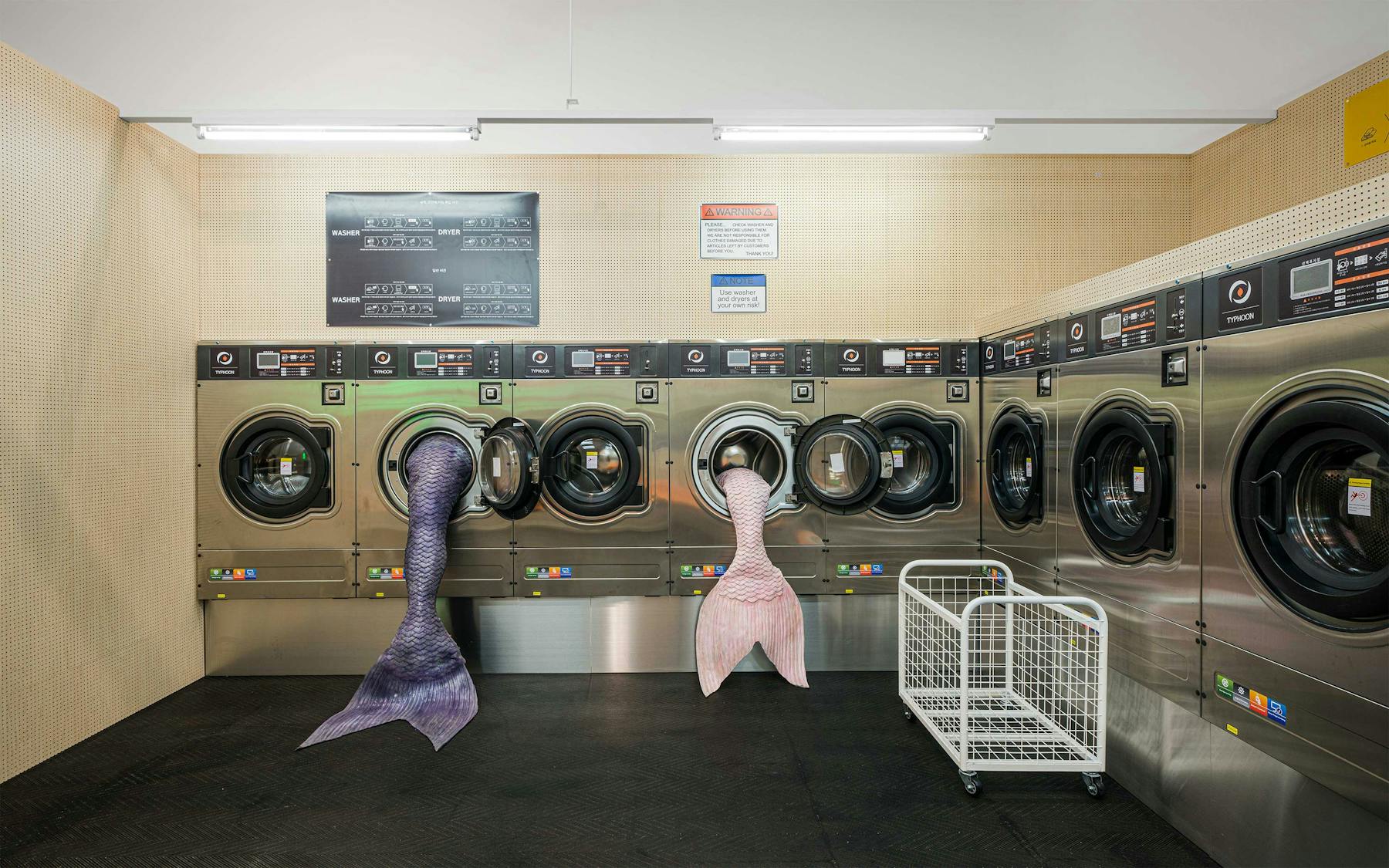
OLIVIA ERLANGER, Ida, Ida, Ida!, 2020
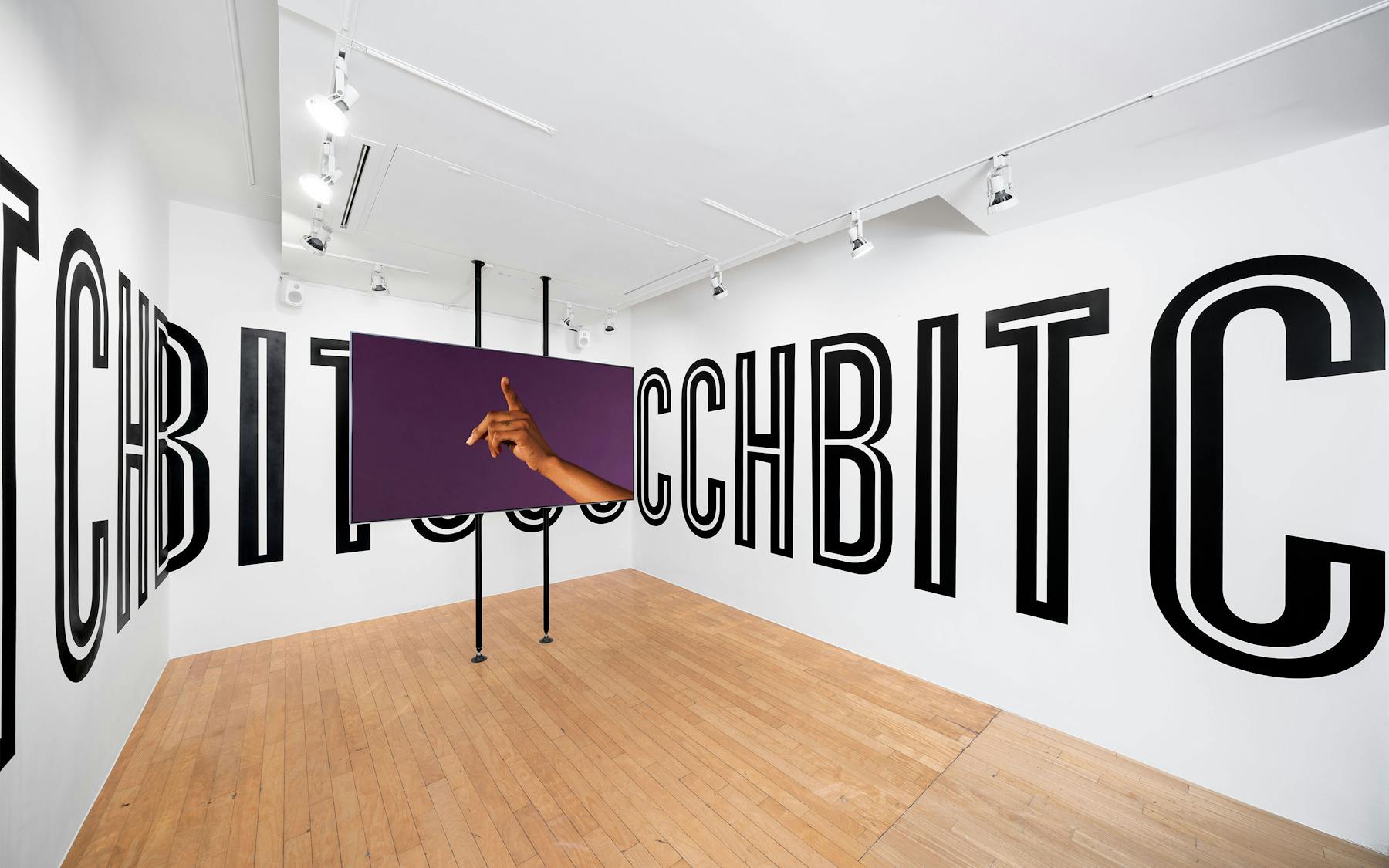
MARTINE SYMS, Notes on Gesture, 2015
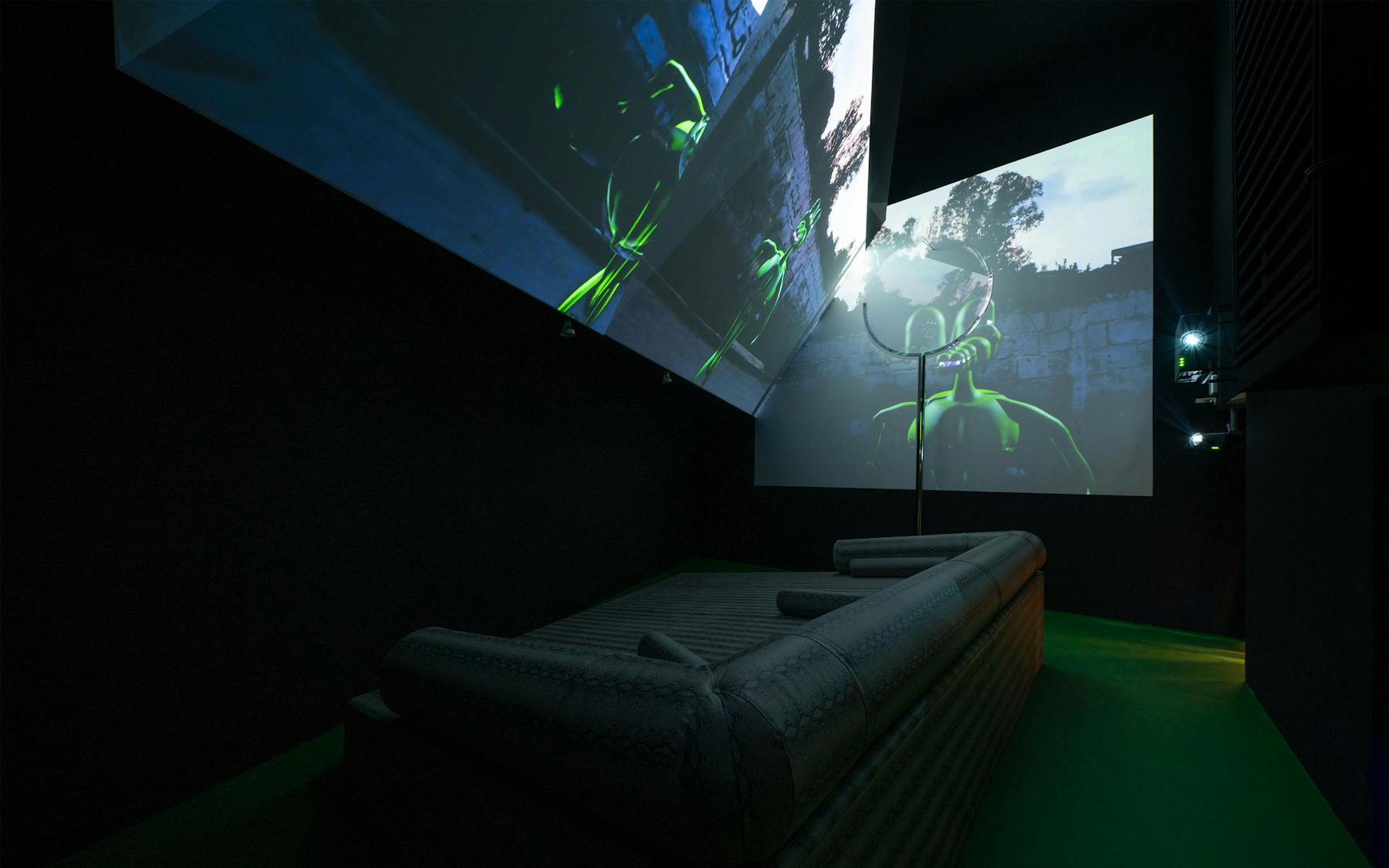
MERIEM BENNANI, Party on the CAPS, 2018/2019
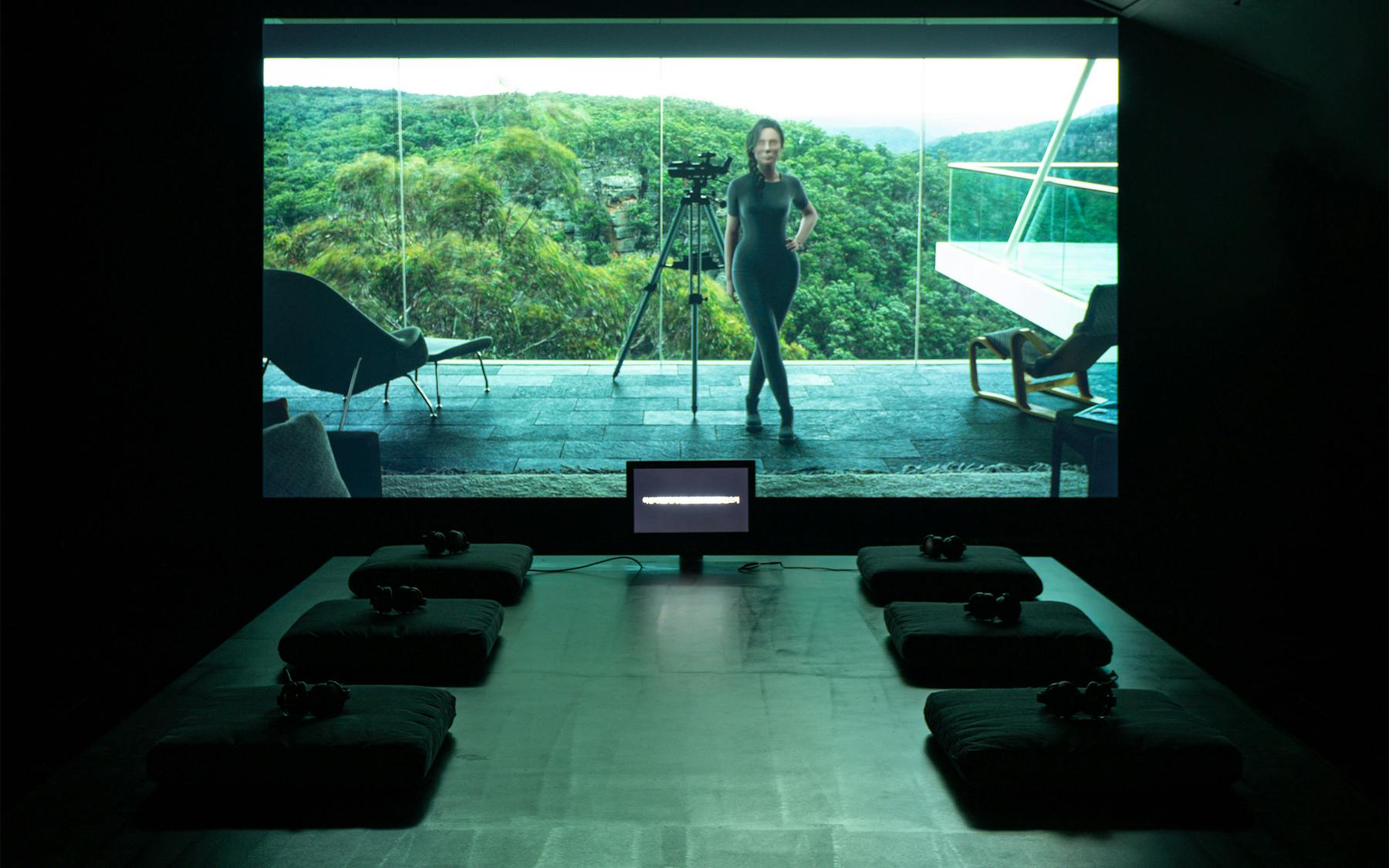
CÉCILE B. EVANS, What the Heart Wants, 2016
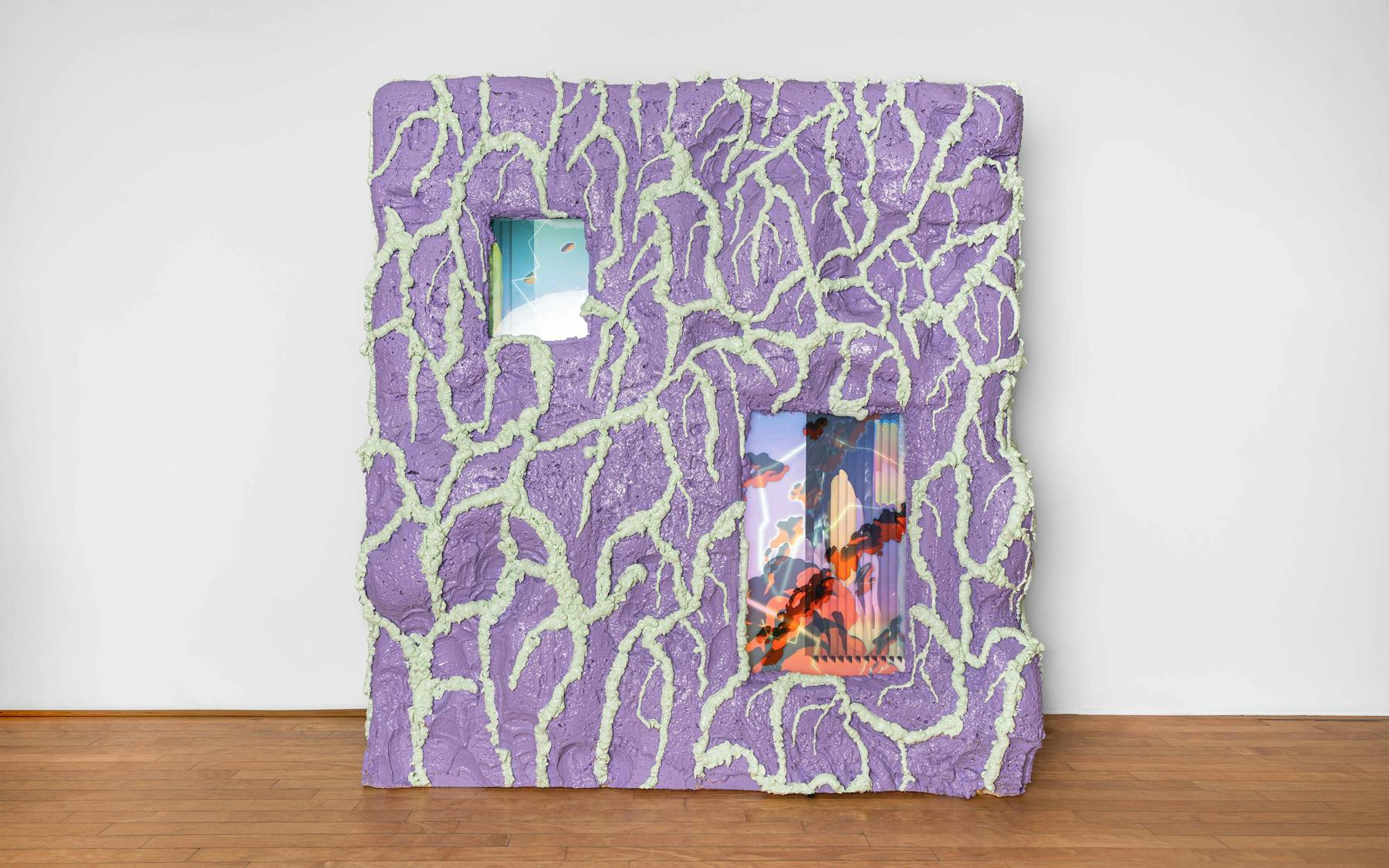
DANS TA CHAMBRE AND JOOHYE MOON, Creeper, 2020; part of “ Secret for Longevity” by WHITE NOISE
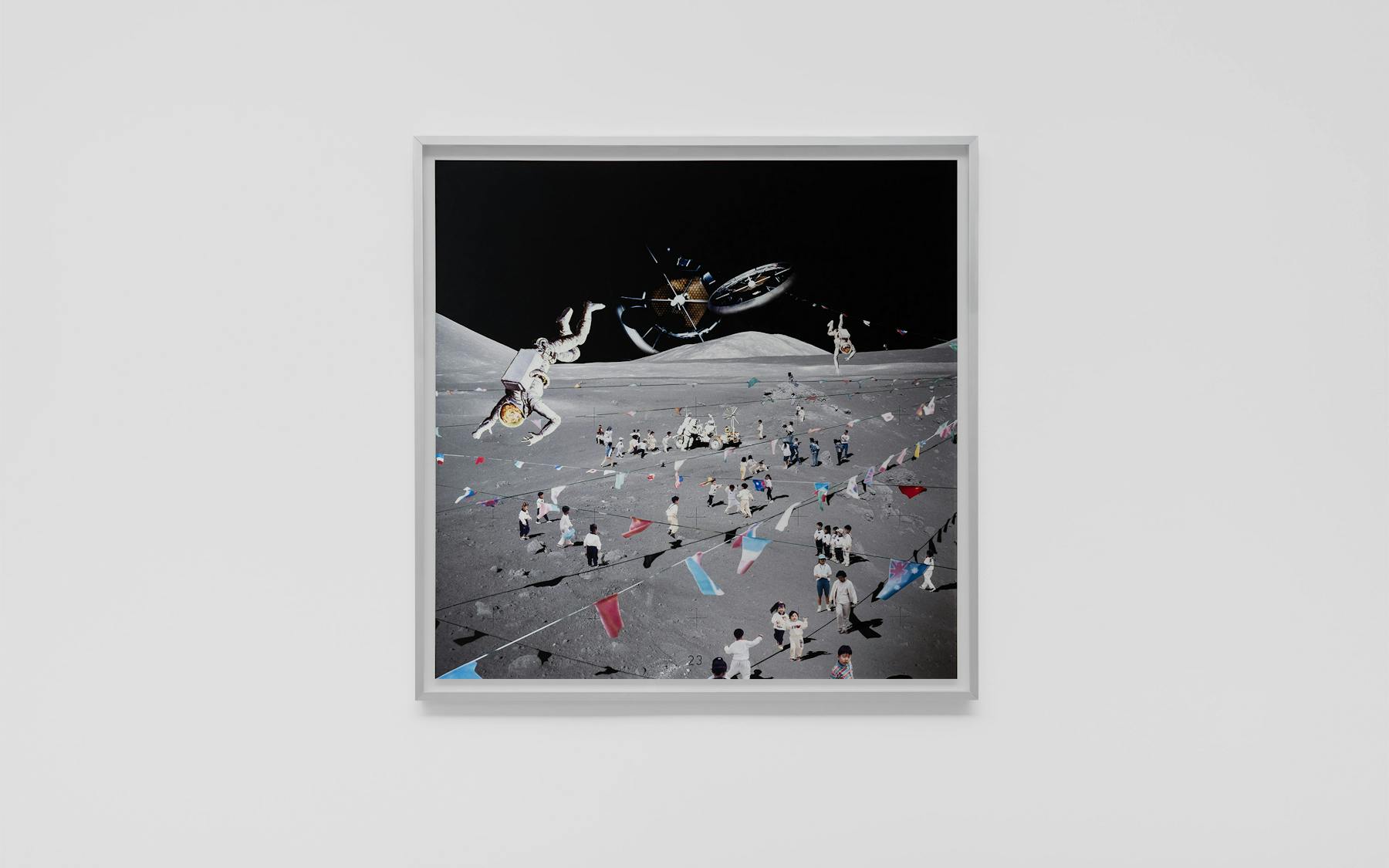
KANG WOOHYEOK, Field Day, 2018; part of “ Lunar Real Estate ” by POST TERRITORY UJEONGGUK
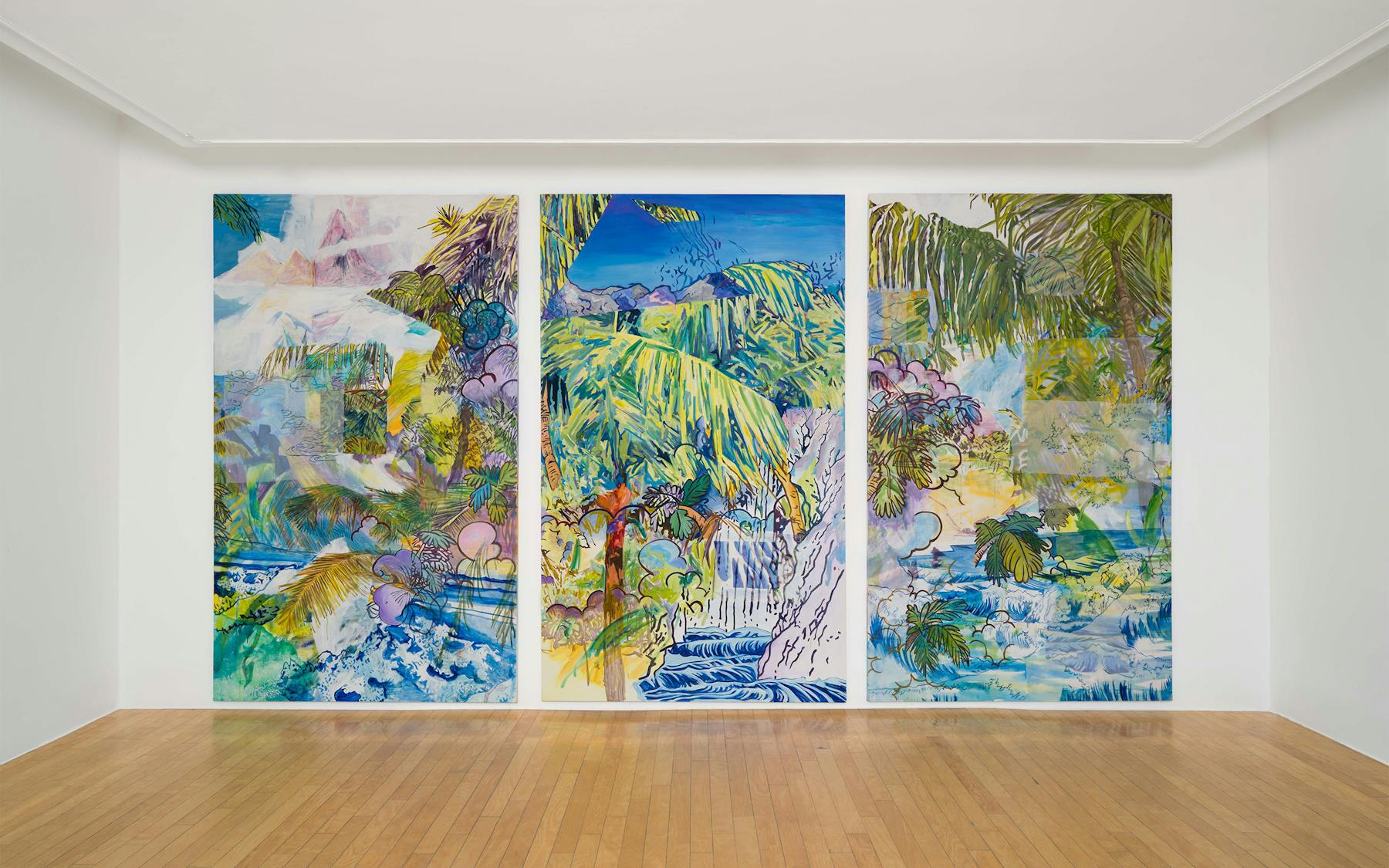
JUN HYERIM, Perfect Skin, 2018; part of “ Index of Six Sides ” by HAPJUNGJIGU
ACAB, Nook in Gucci and the (virtual) future of fashion
While roundabouts and streets were inaccessible to protestors during the lockdown, the Gilets Jaunes arranged to meet on an Animal Crossing island – with their fluorescent gilets and ACAB-emblazoned baseball caps pulled down on their heads – to express, in a virtual chorus, their demands. Around the same time, Representative Alexandria Ocasio-Cortez (NY), went on the campaign trail in the game, visiting her supporters’ islands. Another sector, another register: the world of fashion also burst into the game through a catwalk show presenting a selection of designs from recent collections by Paco Rabanne, Craig Green, GmBH, Loewe and Prada, in the context of the Reference Festival, whose founder, Mumi Haiati, who has made it his mission to create concrete new channels between fashion and new technologies. For their part, Marc Jacobs, Valentino and Sandy Liany have also turned towards video games to present their new collections.
It would be a mistake to see in this a fundamental reorientation. Fashion did not wait for the Corona crisis to start thinking about new possibilities – this work of reflection and projection had started happening some time ago. As the second most polluting industry, fashion has an obligation to anticipate the world that comes after, and even to try and save it. In this vital, existential quest, it is not surprising to see it become involved in the marvellous world of Animal Crossing. Fashion has understood that its future will be virtual, even immaterial, or it will not be at all, and the generations in charge of that future (its holy grail) can already spy in the distance the end of capitalism and the advent of another global political system.
Organized by Gucci and ‘curated’ by Myriam Ben Salah, the exhibition ‘No Space, Just a Place, Eterotopia’, which took place in Seoul between May and July, offered further proof of fashion’s desire to sketch, ornament or inaugurate ‘other spaces.’ The works selected by Myriam Ben Salah all orbited around the notion of heterotopia as an ‘alternative,’ highlighting Seoul’s independent art spaces. When asked about Gucci’s decision to make heterotopia the central theme of the exhibition, its co-ordinator spoke about in terms of duty. ‘The period we’re living through (and which we were living through even before the pandemic) urgently demands that we consider alternative ways of doing things, spaces – both physical and mental – in which we can construct new narratives which call into question what we think of as ‘normal’.’
Since taking the helm at Gucci in 2015, Alessandro Michele has met this exigency head-on. ‘I often describe him as a punk poet, because he thinks with the same freedom as an artist, which is refreshing in the world of fashion,’ confides Myriam Ben Salah. ‘In his collections, he re-evaluates questions of genre, he approaches every show like a sort of manifesto which effaces the established rules of the milieu to offer something truly new, without necessarily being faddish.’ At the end of May, the designer presented the new outlines of the future of fashion – at least as he conceives it – at a virtual press conference. A reduction in the number of shows each year, a fusion of men’s and women’s presentations, doing away with the official calendar... ‘I had the sense that we needed a new inspiration for fashion to be reborn. We have to think about how it works, deconstruct the format of the catwalk show,’ he declared, setting the new foundations of his heterotopia and challenging the limits of the system in which he works.
If we must surely welcome the heterotopian undertakings of Michele or the fashion sector in general, there remains a significant dialectical problem to resolve. In the setting of Animal Crossing, the art galleries of Seoul, the ateliers of Gucci, the fashion industry (like so many other circles) seems to have seized hold of and sought to appropriate the experimental and transformative power of the heterotopia. But the question of the transfer of belief rears its head once more. Fashion, in seizing hold of the framework of the heterotopia to renew and expand the ways in which it exhibits its products, or to experiment with new conditions of existence, must necessarily respect its rules, and therefore, inevitably, effect major change.
You can’t enter or leave a heterotopia without planning to change a corner of the world. Or at least hoping to do so.
Whether we like it or not, the heterotopia is political. And that is one rule (of the game), none can avoid.
Translated into English by Sara & Emma Bielecki.
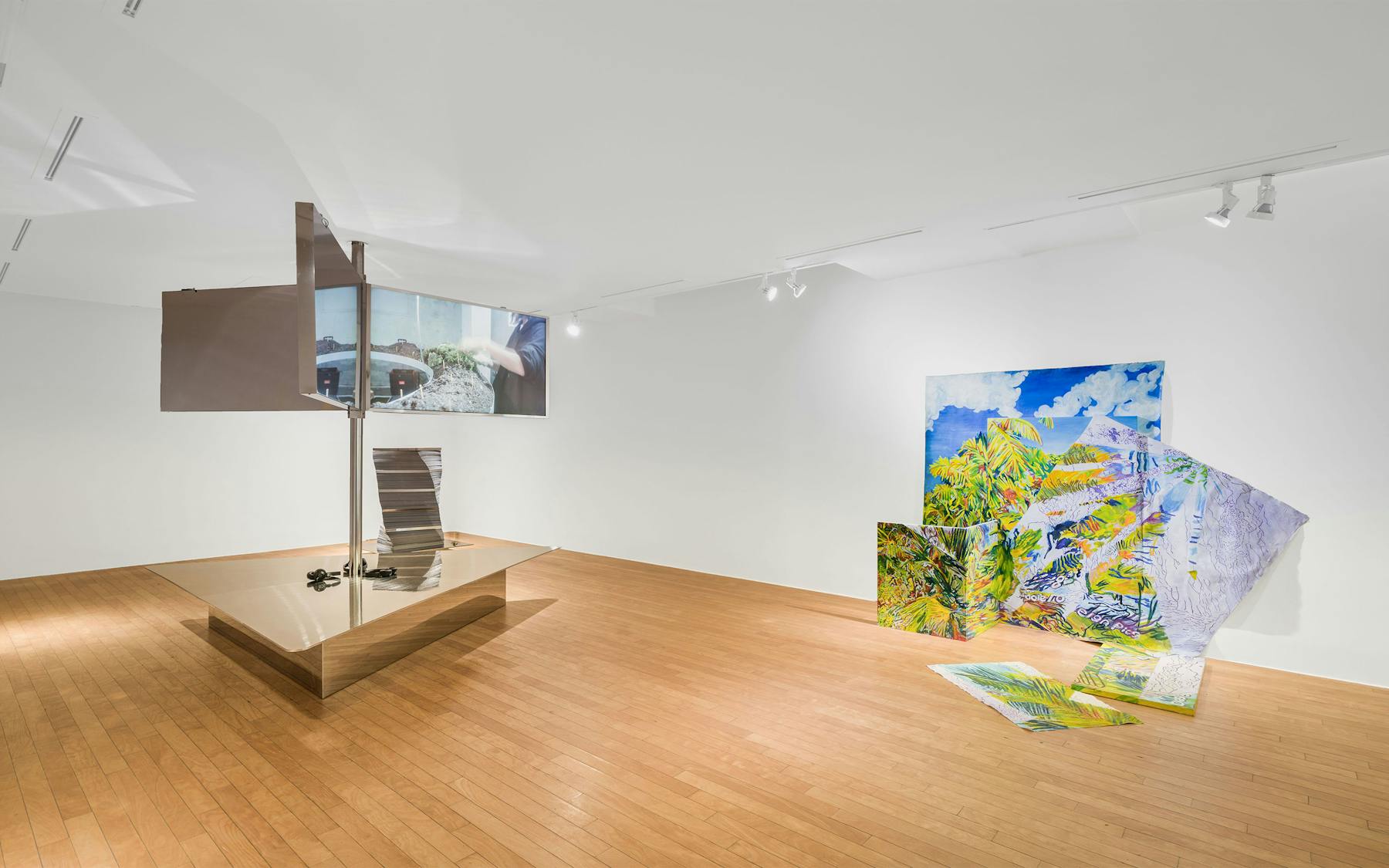
“I love we love we love I” by SPACE ONE;
In the background: JUN HYERIM,
Nothing is There Though #2, 2019;
part of “Index of Six Sides ” by HAPJUNGJIGU
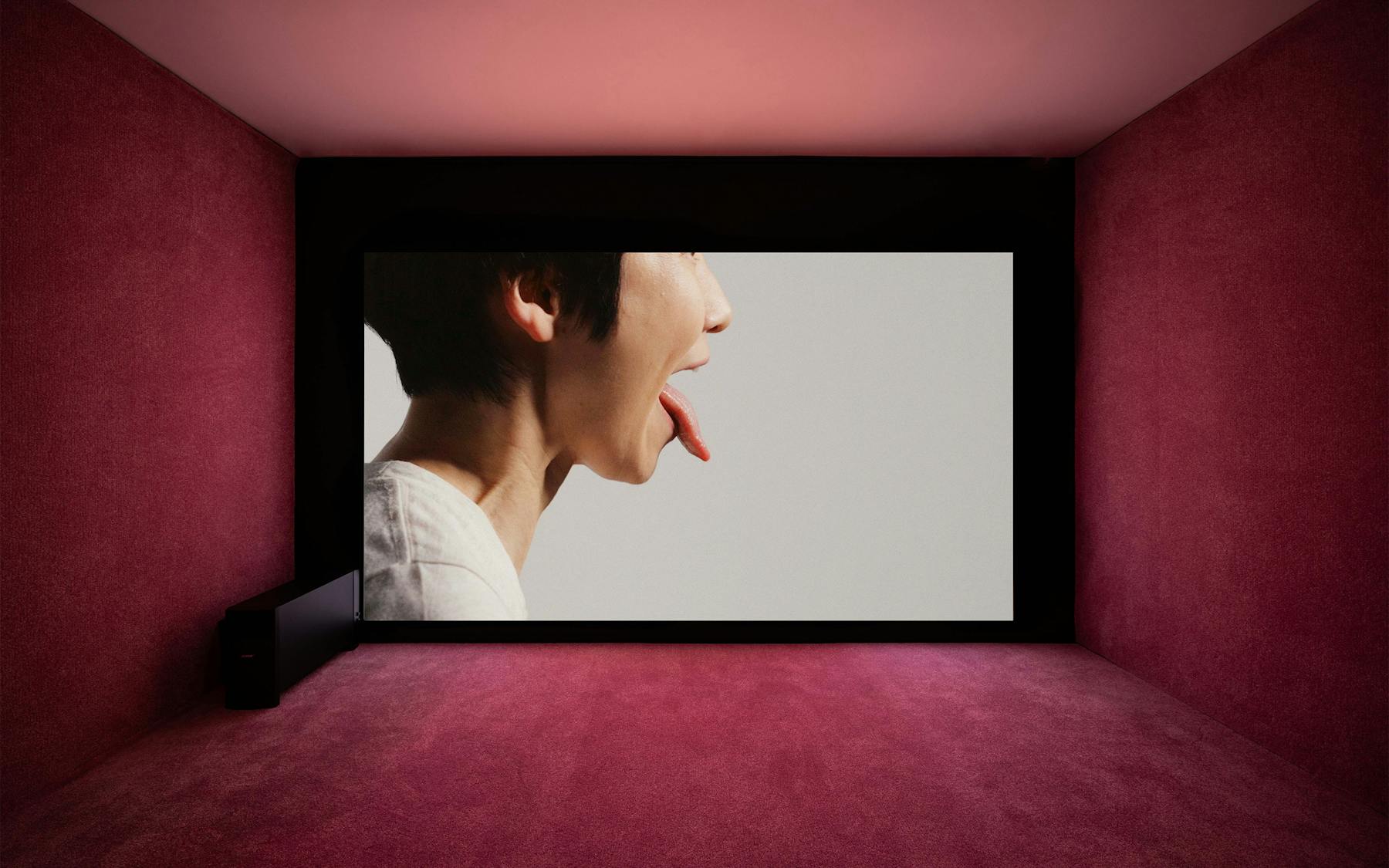
YUNJUNG LEE, Tongue Gymnastics, 2020; exhibited by D/P
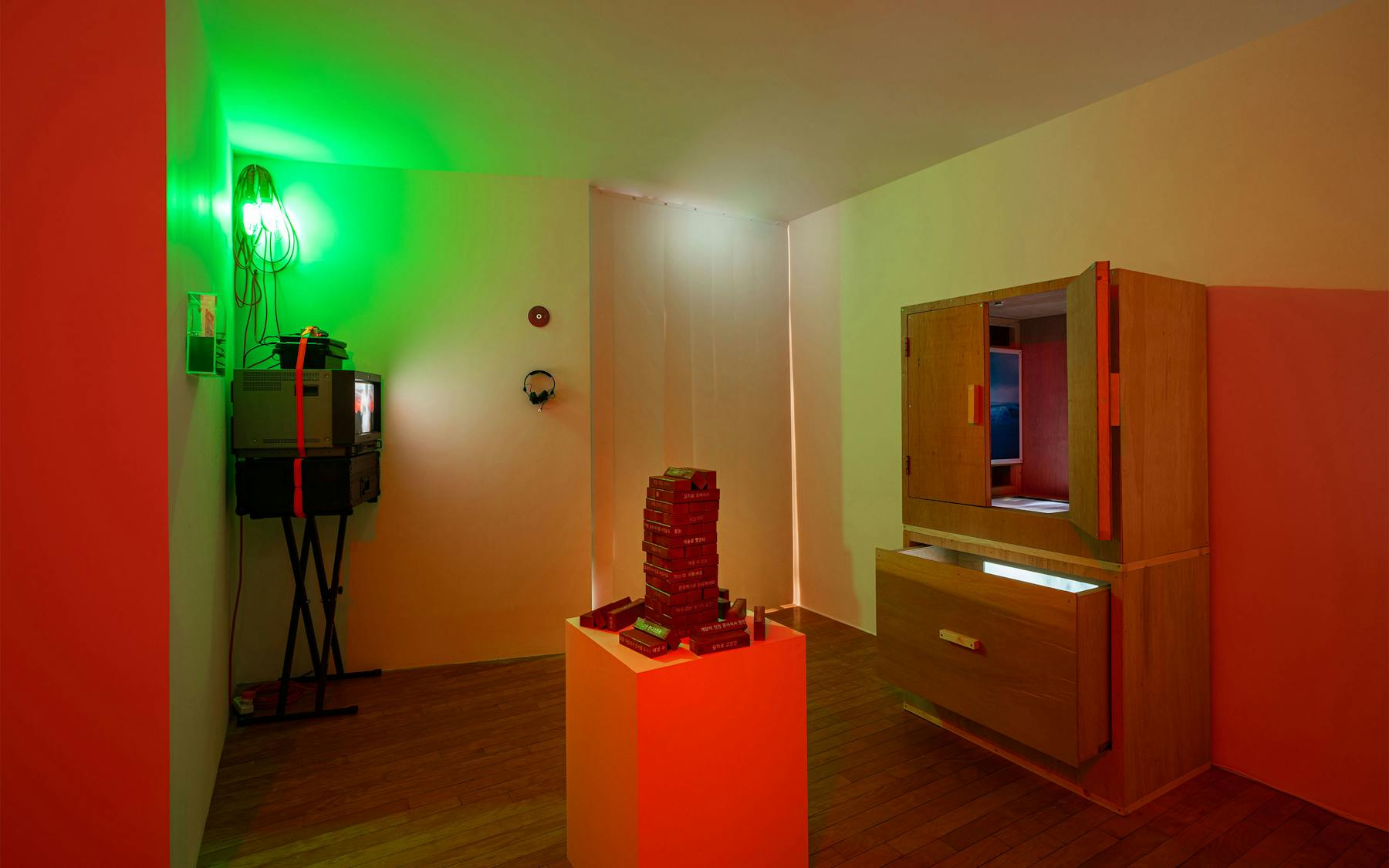
View of "Room" exhibited by OF
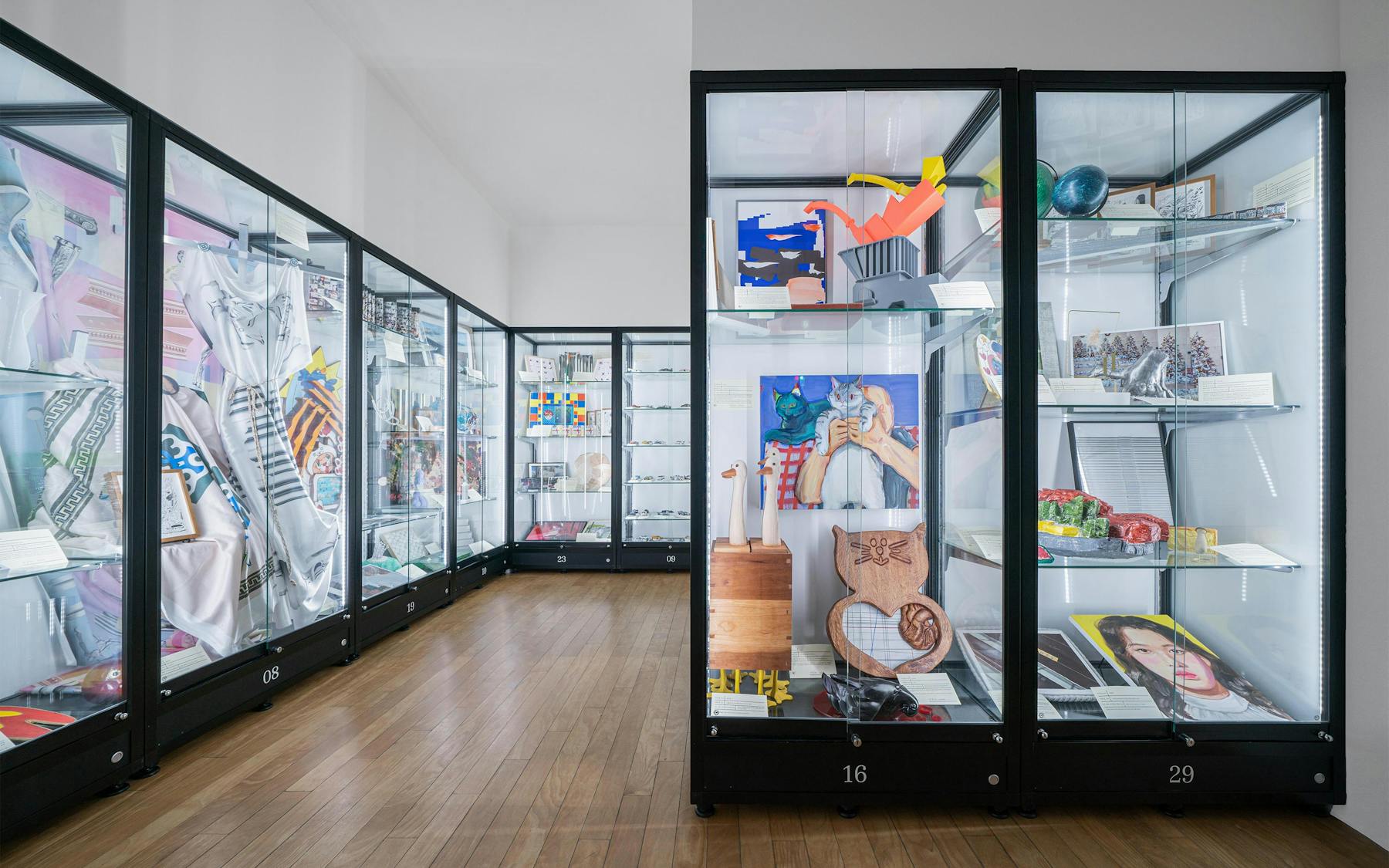
View of “ TasteView Daelim Branch -
Not for Sale ” exhibited by TASTEHOUSE
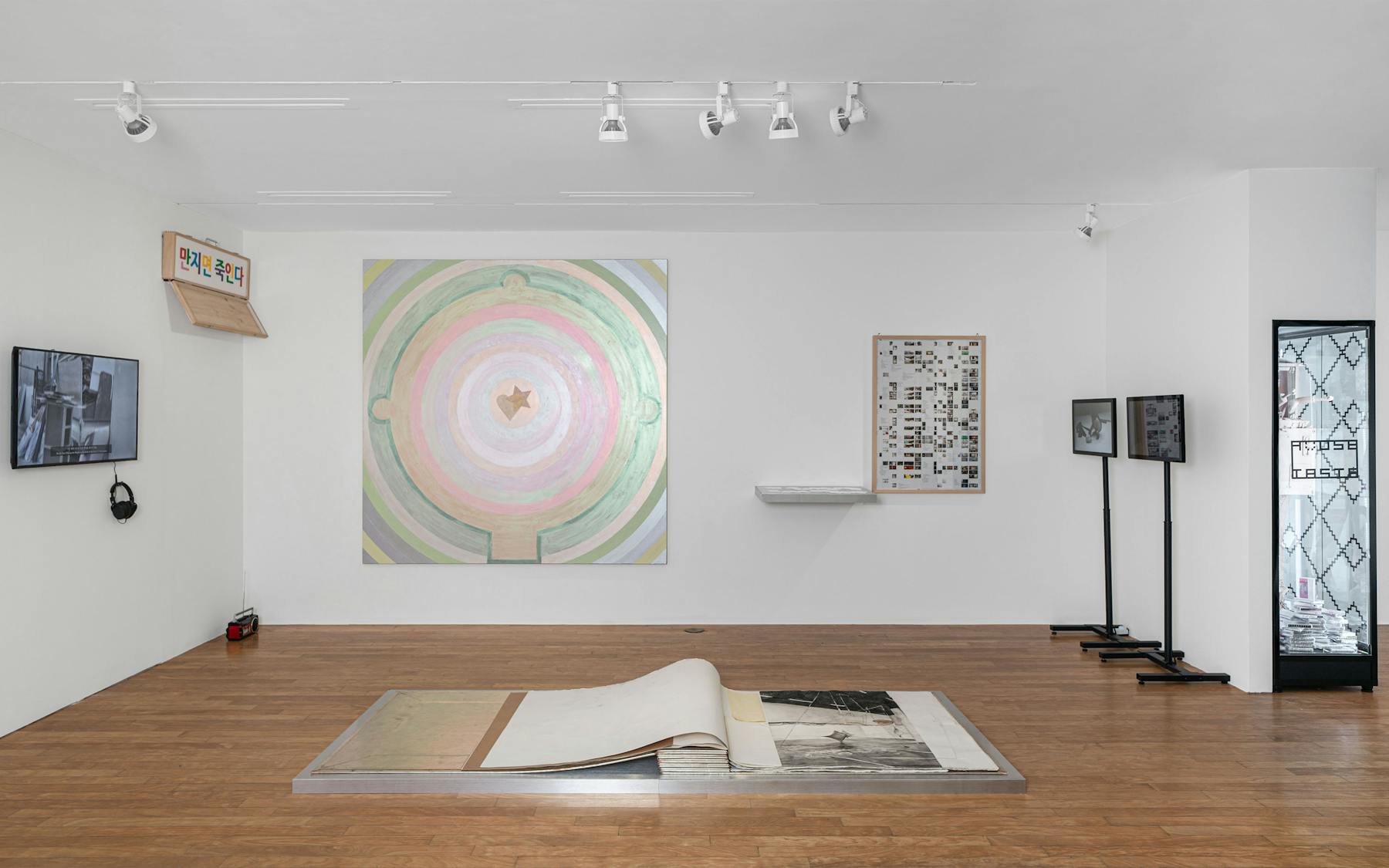
View of “ AVP Route ” exhibited by AUDIO VISUAL PAVILION
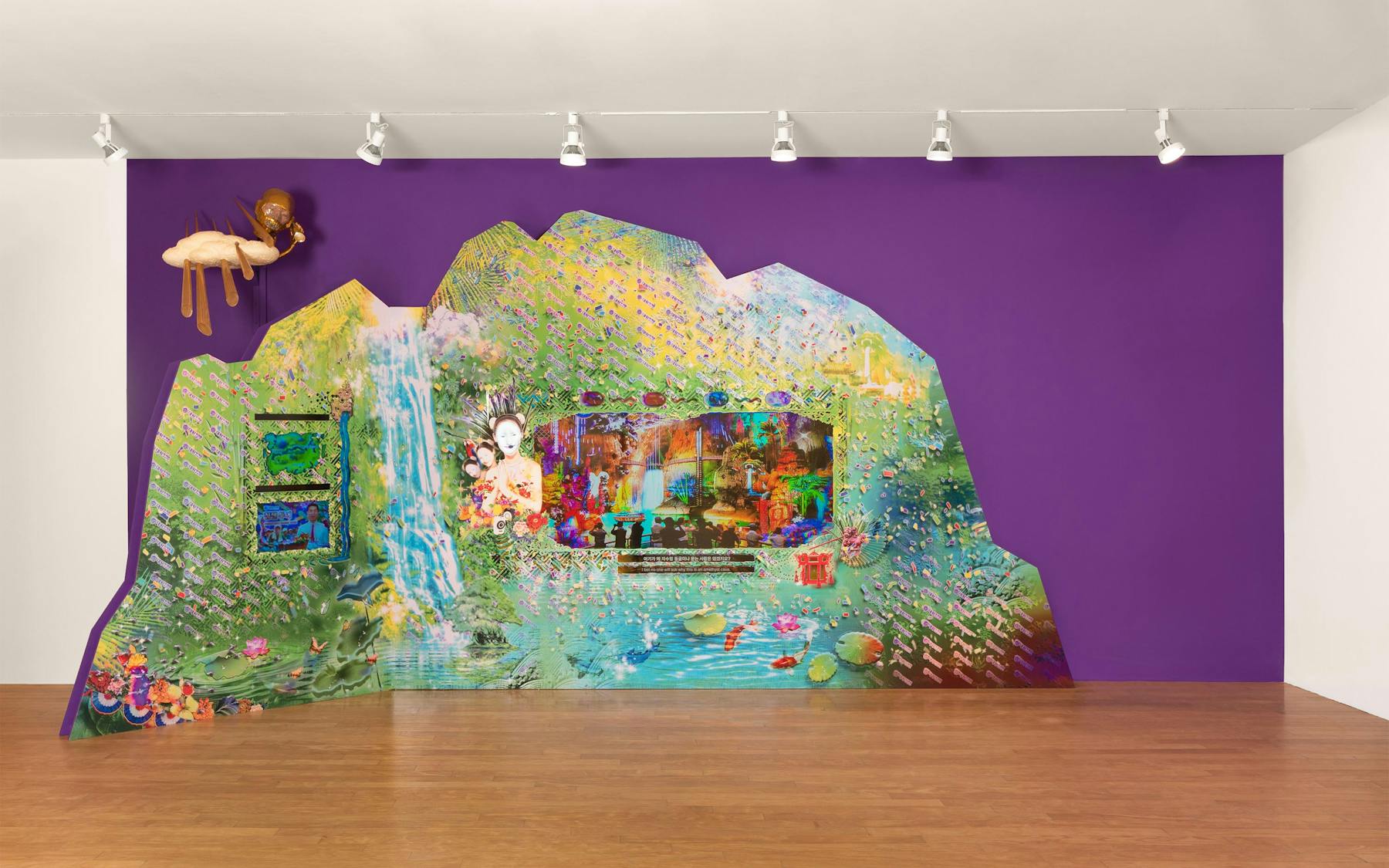
SUNGSIL RYU, Descending Ray, 2020; Big King Travel Ching-Chen Tour, 2020; part of “ Psychedelic Nature: Natasha and Two Yellow Pieces ” by BOAN1942
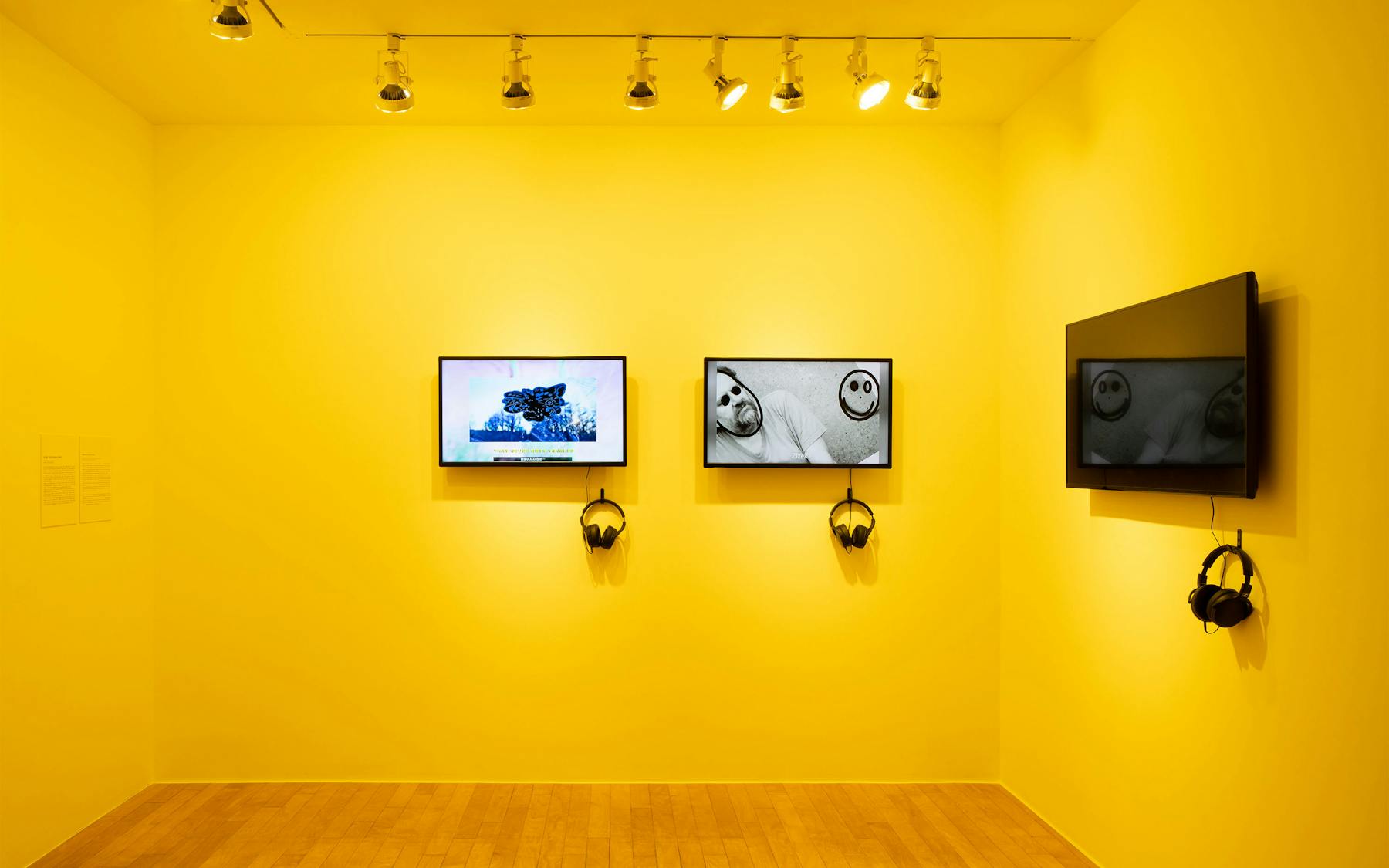
View of “ Swimming Qfwfq ” exhibited by SPACE ILLI
